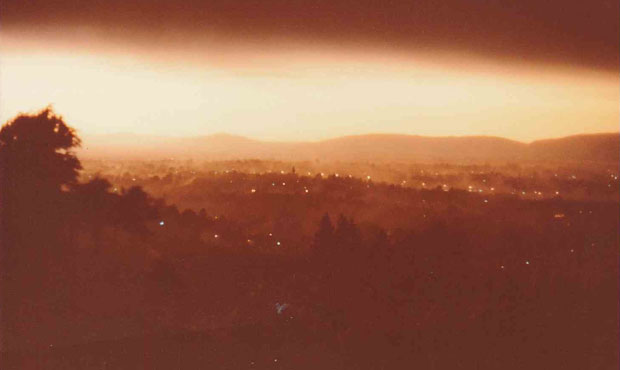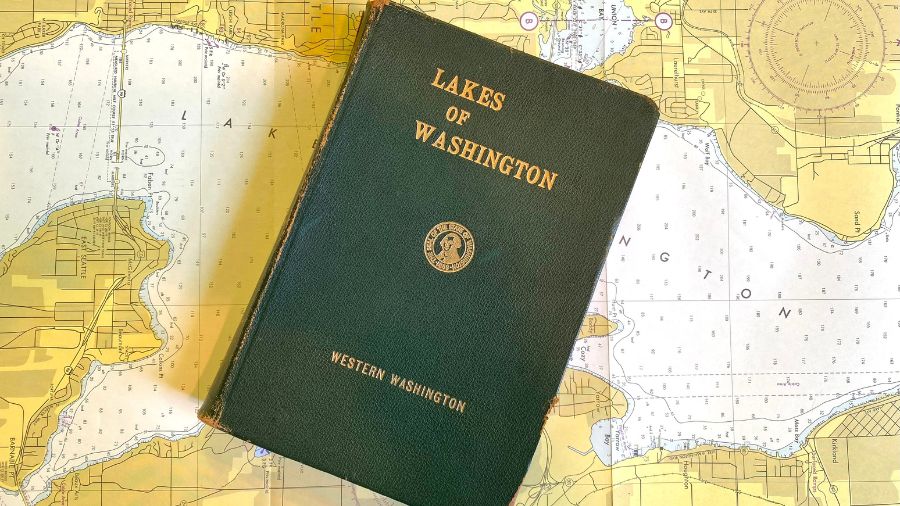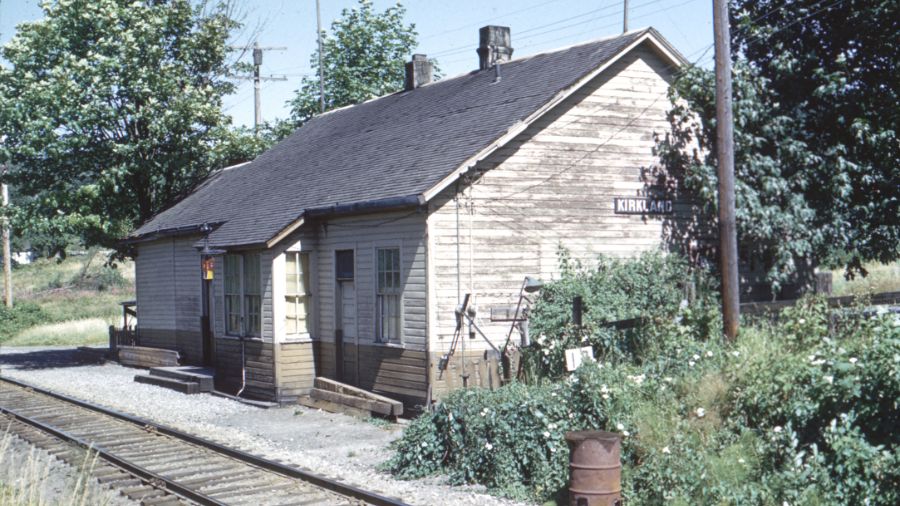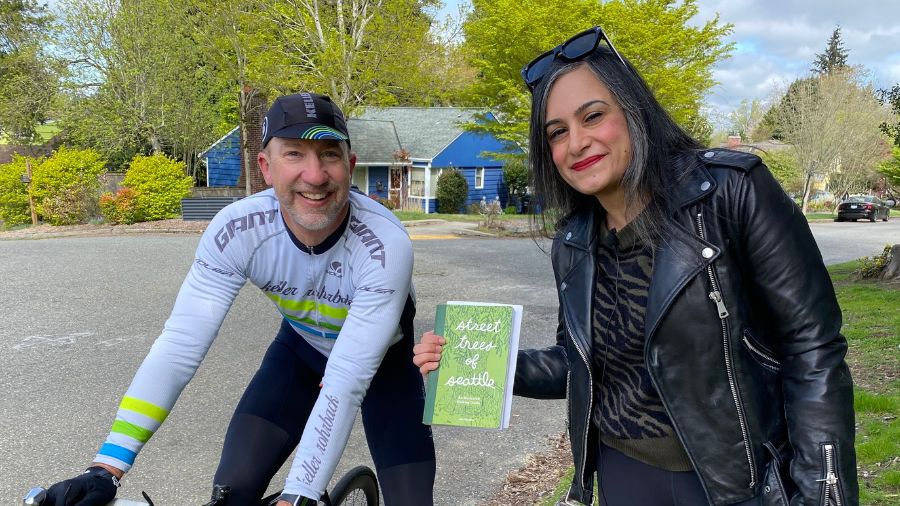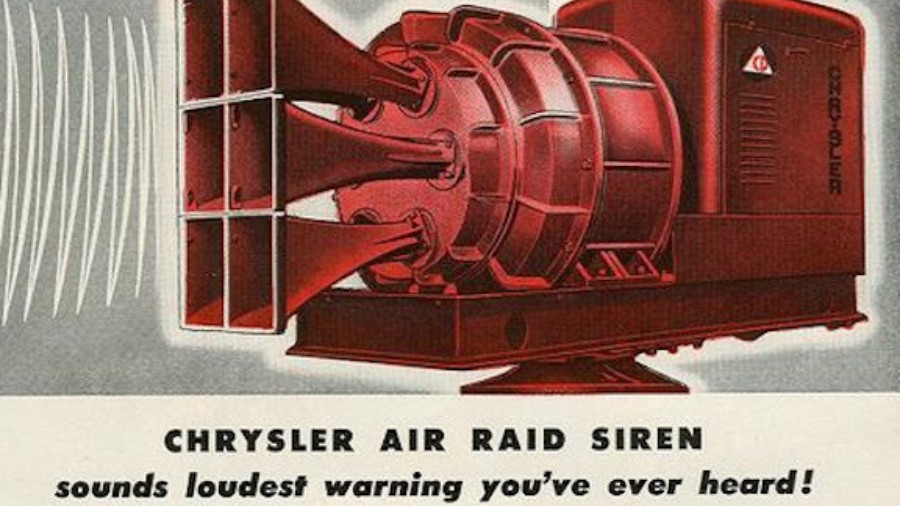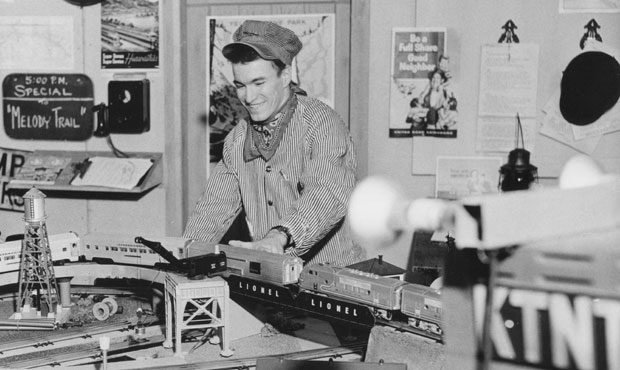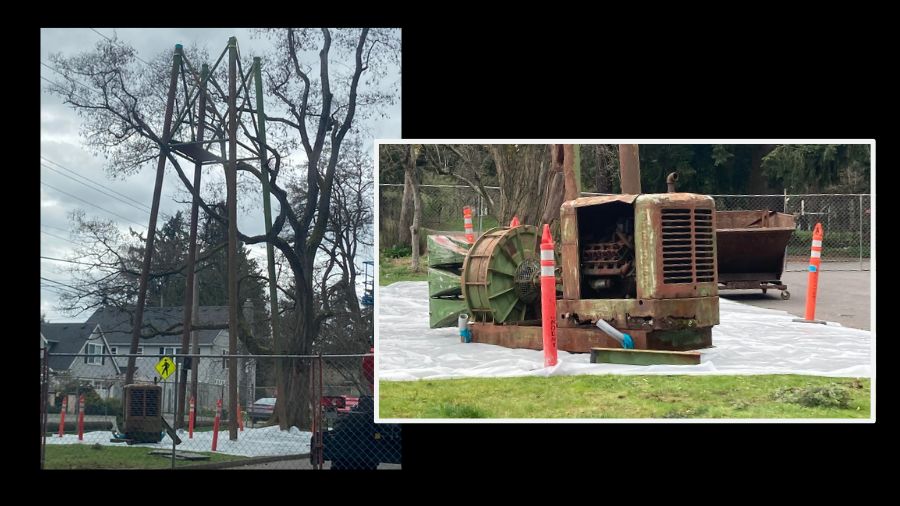KIRO Radio listeners recall Mt. St. Helens eruption
May 18, 2020, 10:49 AM | Updated: May 18, 2021, 11:16 am
It’s been 41 years since the eruption of Mount St. Helens. Check out witness accounts from people with whom historian Feliks Banel spoke for the 40th anniversary last year.
To mark the 40th anniversary of the May 18, 1980, eruption of Mount St. Helens, KIRO Radio has gathered exclusive excerpts from an audio diary recorded in Yakima 40 years ago, as well as some listener accounts of surviving the region’s most intense natural disaster in living memory.
Diane Murphy
Diane Murphy recorded what amounts to an “audio diary” at her home on a ranch up on a hill overlooking Yakima. Mrs. Murphy is from Iowa originally, and she had a friend back home named Cindy. They would send audio cassettes back and forth to stay in touch.
Mrs. Murphy gave her only copy of the old cassette to KIRO Radio earlier this spring. She hadn’t listened to it in decades. It has now been digitized, and the original will go to a museum. Because the tape is one of what might only be a few real-time, non-journalistic accounts of what was taking place in the immediate aftermath of the eruption, it’s priceless.
Yakima was in the direct path of the massive cloud of ash released when Mount St. Helens erupted at 8:32 a.m. that Sunday 40 years ago. At Diane Murphy’s house, and in many communities around Eastern Washington, it was dark as night by midday.
The bulletins coming over are ‘Do not panic.’ We were to close all the houses, bring in as many pets as you could. Close all of the curtains. Plug up any drafts. Cindy, I had been teaching Sunday School, and when I came out at 10 o’clock, there was a terrific black cloud approaching from the west like I used to see in the Midwest and yet I have never seen since I’ve lived in Yakima. But dead calm. And can you believe I debated whether to try to make it home?
And I walked to my car and as soon as I saw the car I said to [my daughter] Megan, ‘The volcano has erupted,’ because there was ash all over my car. I said ‘Get in, don’t breathe.’ I shut the windows. And as I started off, it came sheeting down. The black cloud came over and it became as black as night. It was pouring down so hard you couldn’t see the roads or the stop signs. You could not see. There was just zero visibility.
It momentarily cleared slightly. I could see the cattle hanging on the fence and . . . now I cannot see them again. It is so dense. All I can see on my ledge out the window here . . . is about an inch of this thick black ash. And it is raining down at the moment as if it was a pouring down rainy day. And it’s as black as if it was midnight.
They have shut off the main water. We are in, I guess I’ve never been so afraid in my life. [My husband] Mike and I just sat and stared at one another. First thing we shut the house, shut the windows. We took every container we could find and have filled it with water. We immediately . . . you can taste . . . smell the sulfur in the air and you can taste it. By the time this tape gets to you, if it ever gets to you. If I ever get out of this. I was afraid that we were going to be in this night for the next six months.
KIRO Radio spoke with Diane Murphy yesterday. She was sitting outside at the ranch where she still lives and enjoying the ash-less view. Mrs. Murphy is recovering from a broken hip, and is thrilled that her tape is being shared to mark the anniversary.
On Friday, KIRO Radio put out the call for memories from listeners. We weren’t able to reach out to everyone who responded, but here are two personal recollections.
John Winkler
In 1980, John Winkler was in his late 20s and working as an engineer at Boeing. He and his wife and young son were recent arrivals from California. They somewhat mistakenly ended up camping near the mountain, close to Cispus Learning Center and not far from Randle on the fateful night of Saturday, May 17, 1980.
Early the next morning not long after 8 a.m., John Winkler left his wife and son at their campsite and drove his 1970 Camaro about 15 minutes to the store in Randle to get some more salmon eggs (for fishing) and other supplies.
I go in there and I get a bunch of stuff and then go out the door and I look up and I look to my left, my right, as far as I can see, just a river of everything going straight up in the air. It’s like Niagara Falls, but goin’ in the opposite direction, and it’s all dirt and just turf. It’s going straight up into the air and I’m just sitting there with my mouth open up. I never seen anything like that before. And then lightning shooting up out of the ground. God, I’ve never lightning come up out of the ground before. I mean, you know, because of all the debris hitting each other, I guess. It’s like a spectacular light show.
John Winkler’s story of survival is intense, and his memory of the day is still vividly clear.
After being somewhat dazed by what he was witnessing, he says he snapped out of it, and headed back toward the campsite, against a massive flow of vehicle traffic coming down the canyon.
In the flood of traffic, he somehow found his wife and son riding down the canyon in the back of pickup truck. They got into his car, but in the poor visibility from the falling ash, he accidentally put the Camaro in a ditch alongside the road. The family was forced to hitch a ride with a woman driving solo in a car. She was panicking and hysterical.
I told my wife, I said, ‘You get in the front seat and I’ll get in the back seat.’ And then, whenever the windshield — because it’s like a blizzard of volcanic ash and that’s how I ran my car off the road, it’s just like snow, it gets down on your windshield and your windshield wiper packs it down and then pretty soon your windshield wiper is not even hardly moving at all, because you’ve got all this packed down volcanic ash in there.
So I told the lady, I said, ‘When it gets that way, stop. I’ll get out of the car and I’ll clear off the windshield.’ So what would normally take about maybe 15 minutes at the most took us four hours. Walking speed almost. Driving at almost walking speed. You can’t see nothing at all. Nothing.
Somehow, they made it to safety. John Winkler asked the woman — whose name he says he can’t remember, but he may never have even asked — to take them to a bus stop so they could make their way back home. But, she insisted on driving them all the way to where they lived in Federal Way.
Winkler went to work the next day on the swing shift at Boeing. He says nobody there really believed his story. But one of his co-workers with a four-wheel-drive pickup drove him back down to south of Randle to get the Camaro out of the ditch and to get his tent and other camping gear.
Looking back, he says that surviving the eruption didn’t create any PTSD and that he never had nightmares. He says he never panicked, and the whole episode made him feel like he could handle anything. He had a long career in aerospace engineering, mostly in California, before retiring to Las Vegas.
Paulette Caswell
Paulette Caswell shared her memories via email.
I was 8 years old, living in Morton, WA. Sunny, Sunday morning, Dad was working on the car in our drive way. I remember looking up and seeing a plume of dark clouds rolling over the hills in the sky, and yelling, something like, ‘Daddy, I think the mountain blew!’ He rushed us in the house. We had rocks, mud, ash falling from the sky all around us. It was as dark as night, we all watched the television, as we watched houses of people we knew get destroyed on the river.
Watching live coverage of news anchors stuck on the mountain. I remember being scared but completely fascinated by it all. At one point, I tried to go outside to see the earth falling from the sky, an adult pulled me in, scared. That day will be imprinted in my mind forever. An incredibly unique experience living less than 25 miles from an exploding mountain.
As for me, May 1980 was a great time to be an 11-year-old in the Pacific Northwest. I sat in my treehouse and listened to KIRO Radio all day. Which, come to think of it, is not too different from the 51-year-old version of myself lately.
You can hear Feliks every Wednesday and Friday morning on Seattle’s Morning News and read more from him here. If you have a story idea, please email Feliks here.

